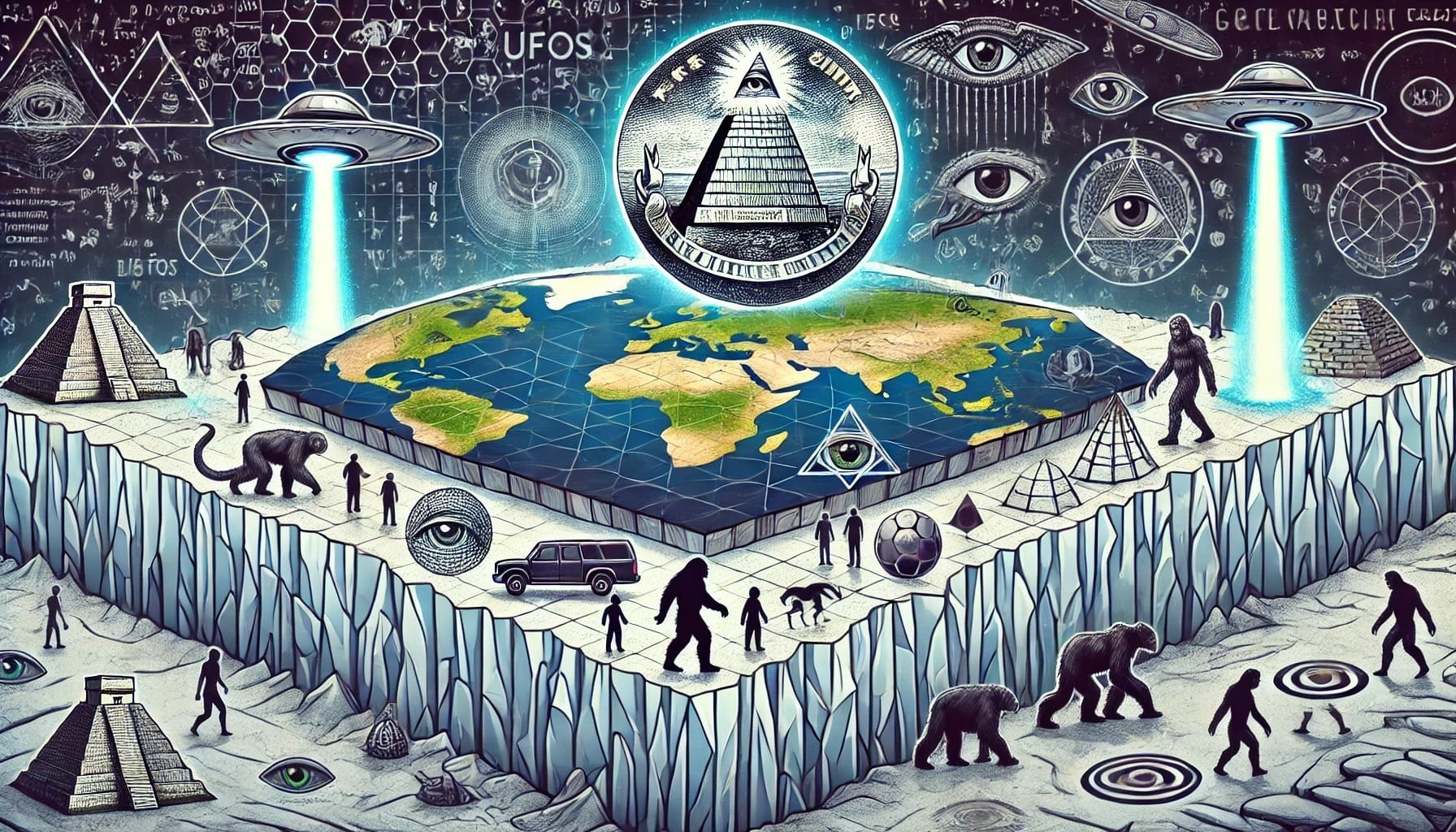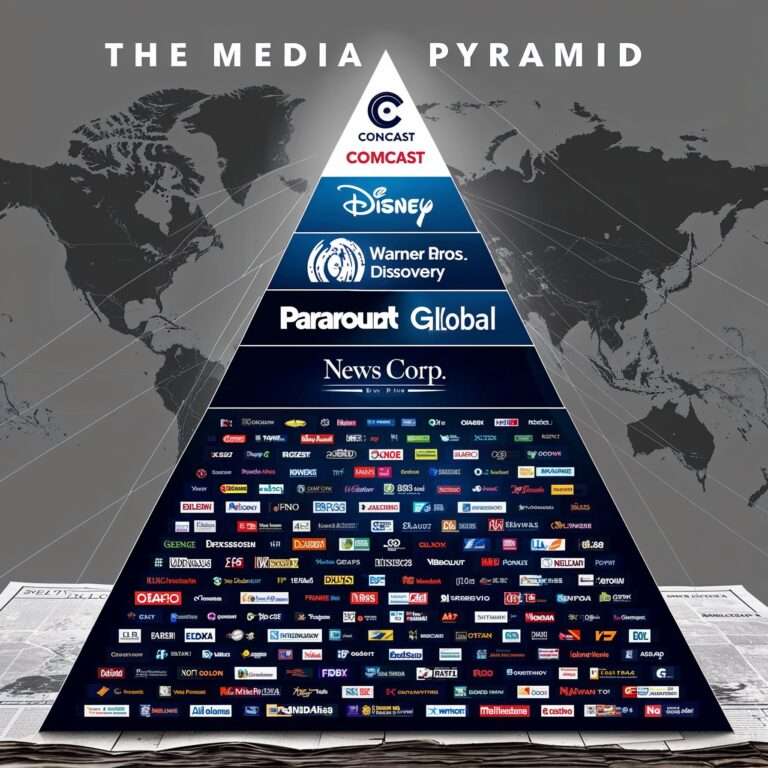
“An exploration of why Flat Earth Theory appeals today, examining social, psychological, and biblical perspectives.”
In a time when vast amounts of information are accessible at the touch of a screen, Flat Earth Theory has surprisingly persisted and even gained traction among niche communities. To many, the idea that the Earth could be flat is easily dismissed as unscientific, but for those who embrace it, this theory isn’t just a question of physical geography—it’s a rejection of mainstream narratives and a stance of defiance against a world they feel misled by. In this article, we’ll explore why Flat Earth Theory appeals to certain people today, what it symbolizes about societal trust, and how it fits into a broader pattern of skepticism and alternative beliefs.
The Origins of Flat Earth Theory: From Ancient Belief to Modern Symbol
Historically, ancient civilizations were rooted in varying beliefs about the Earth’s shape, with flat-earth perspectives prominent until later scientific discoveries reshaped our understanding. Although scientific consensus eventually dispelled the flat-earth concept, its resurgence in recent decades isn’t simply about revisiting old ideas. Instead, Flat Earth Theory has become a kind of symbolic rebellion—a lens through which some question authority and institutional knowledge in a world that often feels incomprehensible.
- Historical Context: In early civilizations, limited technology and observational constraints often supported flat-earth models. With the advent of better instruments, exploration, and the scientific method, Earth’s spherical shape became widely accepted. The theory’s revival in modern times serves more as an emblem of defiance than as a genuine attempt to re-evaluate ancient cosmology.
- Modern Resurgence: Today, Flat Earth Theory is less about earnest belief and more about resisting mainstream scientific narratives. For its proponents, subscribing to such a theory provides an alternative framework through which they feel empowered to question perceived lies or cover-ups by powerful institutions.
Why People Gravitate Toward Flat Earth Theory Today
Understanding why individuals are drawn to Flat Earth Theory reveals broader issues around trust, media consumption, and human psychology. In a society where institutions and authorities are often viewed with suspicion, embracing an alternative reality can offer a sense of control and clarity in an otherwise complex world.
- Distrust in Institutions: Many adherents of Flat Earth Theory also distrust mainstream institutions, often believing that these entities have hidden agendas or actively mislead the public. Distrust in government, science, and even education plays a significant role in fostering this community. Skepticism toward established authority is a driving factor, with many viewing their beliefs as a way to “think independently” or “see the truth.”
- Psychological Factors: Flat Earth Theory appeals to cognitive biases that reinforce personal beliefs, such as the Dunning-Kruger effect (where individuals overestimate their knowledge on a topic). It also satisfies a psychological need for simplicity in an overwhelmingly complex world, providing clear answers where mainstream explanations might feel ambiguous or insufficient.
- The Role of Echo Chambers: Social media has amplified echo chambers, where like-minded individuals reinforce each other’s beliefs without challenge. Platforms like YouTube and Facebook have been noted for their algorithms that promote sensational content, unintentionally pushing people further into isolated belief systems. The Flat Earth community, much like other conspiracy groups, thrives in these digital echo chambers, which can foster a sense of belonging and validation.
Flat Earth Theory as a Case Study in Modern Conspiracism
In many ways, the persistence of Flat Earth Theory highlights the broader rise of conspiracism in modern society. Adherents often see themselves as part of an exclusive group that possesses secret knowledge, creating a powerful identity that can be hard to leave behind. This dynamic mirrors patterns seen in other conspiracy theories, where belonging and identity are closely tied to belief.
- Identity and Belonging: For some, adopting a flat-earth perspective offers a sense of purpose and identity. Being part of a community that challenges mainstream science fosters an “us versus them” mentality, reinforcing the idea that adherents are part of a select, enlightened group who see the “real truth.”
- The Allure of Secret Knowledge: Conspiracy theories often present themselves as hidden truths, knowledge that only a few have access to. Flat Earth Theory appeals to this same desire for exclusive insight, suggesting that adherents are part of an elite group who can see beyond the “lies” presented by scientists, educators, and governments.
The Biblical Perspective: Faith, Truth, and Discernment
From a biblical standpoint, Flat Earth Theory—and similar conspiracy theories—raises questions about discernment, trust, and where we find truth. The Bible calls believers to seek wisdom, understanding, and humility, acknowledging that no human knowledge is perfect but that God’s truth remains constant.
- Discernment and Wisdom: Proverbs 2:6 says, “For the Lord gives wisdom; from His mouth come knowledge and understanding.” Discernment is essential in a world filled with misinformation. The Bible encourages a search for truth grounded in humility and wisdom rather than pride or rebellion against established knowledge.
- Humility vs. Pride: Flat Earth Theory often appeals to a sense of pride in “knowing the real truth” that others do not. Proverbs 11:2 warns, “When pride comes, then comes disgrace, but with humility comes wisdom.” This perspective reminds believers that truth-seeking should not be driven by ego but by a sincere desire for understanding.
- Trusting God’s Design: The Bible describes the Earth as God’s creation, designed with purpose and order. While scientific and spiritual understandings of the world can complement each other, it’s essential to approach both with humility, recognizing that ultimate knowledge belongs to God alone.
What Flat Earth Theory Reveals About Society’s Relationship with Truth
The enduring appeal of Flat Earth Theory points to a crisis in how modern society perceives truth and authority. In an age when misinformation can spread quickly and easily, people are increasingly questioning what they once trusted. This shift reveals a growing cultural skepticism toward traditional sources of information.
- A Shift Toward Relativism: As trust in objective truth erodes, people increasingly gravitate toward narratives that fit their own worldview, rather than seeking verifiable information. This trend mirrors a shift toward moral and epistemological relativism, where truth becomes subjective rather than absolute.
- The Influence of Digital Media: The internet has become both a powerful tool for spreading truth and a double-edged sword that amplifies conspiracies. Flat Earth Theory underscores how online platforms can fuel fringe ideas by providing a place for isolated beliefs to thrive.
- Humanity’s Desire for Control: Believing in an alternative worldview gives adherents a sense of control over reality, particularly in times of uncertainty. Flat Earth Theory, like many conspiracy theories, offers a sense of purpose in a world that feels increasingly unpredictable.
Conclusion: A Call to Seek Wisdom and Truth
Flat Earth Theory, while scientifically debunked, persists as a reflection of society’s complicated relationship with authority, truth, and belonging. For those of faith, it is a reminder of the importance of discernment, humility, and a commitment to seeking truth in a world rife with misinformation.
Proverbs 3:5-6 encourages believers to “Trust in the Lord with all your heart and lean not on your own understanding; in all your ways submit to him, and he will make your paths straight.” As society grapples with skepticism and mistrust, the call to seek wisdom and humility in truth remains ever relevant.
DARWIN’s Take
In a world that grows ever more complex, we find comfort in simple answers—even if they lead us astray. Flat Earth Theory isn’t just about geography; it’s a symbol of rebellion, an answer to the fear of a world too vast to fully grasp. But here’s the irony: by clinging to fringe beliefs, we risk losing our grip on reality altogether. In the end, it’s not about whether the Earth is round or flat; it’s about whether we have the humility to accept the truth and the wisdom to discern it.
Dive Deeper into the World of Conspiracies
The allure of conspiracy theories doesn’t stop with Flat Earth. Why do we gravitate toward these alternate realities? What hidden forces shape our beliefs? Explore more conspiracy content here and uncover the psychology, history, and cultural underpinnings of today’s most gripping mysteries.
Sources
- Psychology Today: Explores the psychological factors contributing to the persistence of Flat Earth beliefs. Psychology Today
- Harvard Political Review: Analyzes the skepticism toward mainstream institutions that fuels conspiracy theories like Flat Earth. Harvard Politics
- MIT Technology Review: Discusses how social media platforms inadvertently promote the spread of misinformation, including Flat Earth content. MIT Technology Review
- Scientific American: Examines cognitive biases, such as the Dunning-Kruger effect, that lead individuals to question established scientific truths. Scientific American
- Brookings Institution: Provides insight into the societal implications of declining trust in established truths and the rise of relativism. Brookings Institution
FAQ: The Modern Appeal of Flat Earth Beliefs and Their Broader Implications
1. Why do some people still embrace beliefs about a Flat Earth?
A mix of psychological drivers, such as cognitive biases and distrust of authority, draws people to Flat Earth beliefs. Many find comfort in being part of a community that values “hidden knowledge,” amplified by echo chambers on social media platforms (Psychology Today).
2. What fuels the skepticism behind mainstream scientific truths?
Flat Earth discussions often stem from mistrust in institutions like governments, academia, and media. Rejecting widely accepted science becomes a way for individuals to challenge perceived deception or hidden agendas, positioning themselves as skeptics of mainstream narratives (Harvard Political Review).
3. How does social media contribute to the spread of alternative Earth models?
Platforms like YouTube and Facebook inadvertently promote Flat Earth content through algorithms designed to surface sensational material. This fosters echo chambers where users only encounter content that reinforces their views, shielding them from alternative perspectives (MIT Technology Review).
4. Are there biblical foundations for believing in a Flat Earth?
While some claim biblical support for Flat Earth ideas, mainstream interpretations emphasize wisdom and discernment. Proverbs 2:6 encourages seeking knowledge and understanding, reminding Christians to approach such claims thoughtfully rather than clinging to fringe interpretations.
5. What psychological tendencies make people question Earth’s shape?
Biases like the Dunning-Kruger effect play a significant role, leading individuals to overestimate their knowledge while dismissing scientific consensus. The simplicity offered by Flat Earth explanations appeals to those overwhelmed by the complexity of modern science (Scientific American).
6. How does Flat Earth thinking align with broader conspiracy theories?
Flat Earth concepts often connect with larger conspiracy narratives, rooted in a worldview that distrusts authority and seeks hidden truths. Believers frequently view themselves as part of a select group uncovering secret knowledge, fostering a sense of identity and belonging (Psychology Today).
7. What is the echo chamber effect, and how does it shape belief in conspiracies?
Echo chambers form when people are exposed only to information that aligns with their existing views. For Flat Earth adherents, social media algorithms amplify this effect, creating closed environments where contrary evidence rarely penetrates (Harvard Business Review).
8. What does the rise of Flat Earth ideas reveal about society’s relationship with facts?
The persistence of these beliefs underscores a societal crisis in trusting established truths. It highlights a growing tendency toward relativism, where personal perspectives outweigh objective evidence, creating fertile ground for misinformation to flourish (Brookings Institution).
9. How can Christians approach claims about a Flat Earth?
Christian teachings emphasize humility and the pursuit of truth. Proverbs 3:5-6 advises believers to trust in the Lord while seeking understanding. Questioning is encouraged, but it must be grounded in discernment and respect for evidence-based knowledge.
10. What does the popularity of Flat Earth narratives teach us about human psychology?
These beliefs reveal a deep human need for certainty and control in a chaotic world. While alternative theories offer comfort, they also highlight the dangers of letting pride or fear of complexity drive us away from truth. Knowledge demands humility and a willingness to confront challenging realities (The Atlantic).


